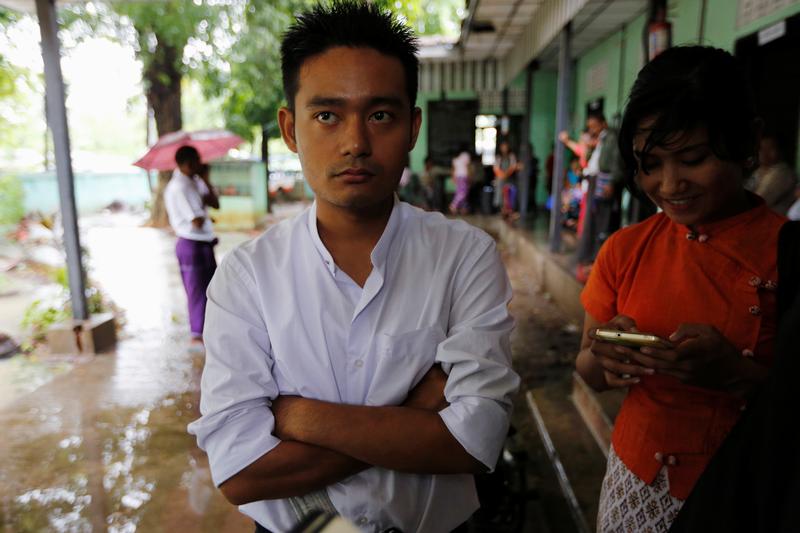Human Rights Watch on Tuesday called on Burma’s Parliament — the membership of which includes more than 100 former political prisoners — to amend or repeal laws that continue to be used to jail activists and average citizens alike for peacefully exercising their right to free speech.
The New York-based international rights advocacy group noted that politically motivated prosecutions have actually increased since late March 2016, when the National League for Democracy government was sworn in.
“Democratic governments don’t imprison those who criticise or somehow ‘insult’ government officials or the military,” said Brad Adams, HRW’s Asia director. “The Burmese people expected the NLD government to bring an end to this kind of repression, not add to the ranks of political prisoners.”
HRW highlighted article 66(d) of the 2013 Telecommunications Law, a controversial defamation provision that has been brought against an estimated 40 people for their online activity — often involving critiques of the government or other public figures — under the NLD administration. Article 66(d) cases have mushroomed over the last year, compared with just seven during the period from the law’s enactment through the transfer of power to the NLD, according to a group of Burmese activists campaigning for changes to the legislation that is led by some of its victims.
“The NLD should be using its majority in Parliament to amend or repeal abusive laws, not filing criminal charges against people expressing their opinions,” Adams said. “Until that’s done, President Htin Kyaw should discourage future prosecutions by announcing that he will use his pardon power in all cases involving peaceful expression, and avoid heading down the path of previous military governments which the NLD rightly criticised.”
[related]
Legislative leaders have sent mixed signals on whether a change to the Telecommunications Law’s article 66(d) is in the offing. Shwe Mann, the former Lower House speaker who now chairs the parliamentary Commission for the Assessment of Legal Affairs and Special Cases, told reporters late last month that the commission had recommended that the law be amended. But sitting Lower House Speaker Win Myint declined to say whether the legislation would be changed during a press conference on 21 December, at the close of the most recent parliamentary session.
HRW on Tuesday also took aim at a broadly worded section of the colonial-era penal code, noting that its prohibition of “incitement” continues to be wielded against those expressing nonviolent criticism of the government and military.



